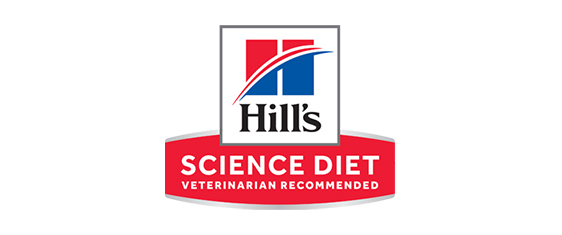Human Medications That Are Toxic To Pets // #1 Cause of Pet Poisonings
Doctor of Veterinary Medicine

While efforts are made to answer all questions as quickly as possible, if an immediate answer is required or if your pet is in need of urgent or emergency care, contact your pet's veterinarian immediately.
Doctor of Veterinary Medicine

You will receive an answer from Dr. Lindsay and our vet/tech team as soon as possible, usually the same day.
All answers are provided for informational or educational purposes only, and are intended to be a supplement to, and not a substitute for, the expertise and professional judgment of your pet's veterinarian.
It may be necessary to consult your pet's veterinarian regarding the applicability of any opinions or recommendations with respect to your pet's symptoms or medical condition.
CloseDoctor of Veterinary Medicine

An error has occurred, please reload the page and try again.
CloseWhile efforts are made to answer all questions as quickly as possible, if an immediate answer is required or if your pet is in need of urgent or emergency care, contact your pet's veterinarian immediately.
There is no answer related to your question

Accidental pet poisonings are one of the biggest health hazards for dogs and cats, affecting millions of pets each year. Even the most diligent pet parents can overlook common household items that pose a toxicity risk to pets. Human medications, including prescription medications, over-the-counter meds, vitamins, and natural supplements, make up nearly 50% of accidental pet poisoning.
In honor of National Pet Poison Prevention Month, learn about the most common human medications that cause poisoning in pets and what you can do to keep your dog or cat safe.
Painkillers and Pets
For every pet parent, one of the worst feelings is seeing your dog or cat in pain. It’s not uncommon for pet parents to make a rash decision and reach for human medications in hopes of helping their pet feel better. However, over-the-counter pain medications indicated for human use are not safe for use in dogs and cats unless under the guidance of a veterinarian.
Over-the-counter nonsteroidal anti-inflammatory drugs (NSAIDs) which include aspirin, ibuprofen, and naproxen work by inhibiting the body’s production of a hormone-like substance called prostaglandins. Prostaglandins cause pain and inflammation, but they also protect the gastrointestinal tract, promote blood flow to the kidneys, and control the formation of blood clots.
When a dog or cat consumes too much of an NSAID, or is administered the drug over a long period of time, the acidic nature of the medication can irritate the lining of the stomach and gastrointestinal tract, and with lowered prostaglandins, the pet is more susceptible to developing painful ulcers. In some cases, NSAIDs can cause kidney failure or liver damage in pets. Severe anemia can also happen.
NSAIDs are commonly prescribed to pets recovering from surgery or an injury. Due to differences in the way dogs and cats metabolize medications, though, they’re much more sensitive than humans and more susceptible to side-effects. Cats, in particular, lack enzymes needed to break down certain chemicals, so a medication will stay in their system for much longer, leaving them even more vulnerable to toxicity.
Pain medication for pets is typically comes in small increments so it’s easier to administer a safe, accurate dose. Your pet’s medication may have a tasty flavor, and it may be a liquid or chewable tablet that your pet accepts as a treat. It may also be formulated to break down in your pet’s stomach while minimizing side effects like nausea and vomiting.
You can give your dog chewable aspirin tablets for dogs for occasional pain, though you will need to see your veterinarian if your dog needs long-term pain management, for example, if they suffer from arthritis.
Never use over-the-counter or prescription pain medication that’s meant for you or other human family members, or those prescribed to other pets. Pets have a very small margin of safety when it comes to pain medications, meaning it doesn’t take much for them to overdose. Seek emergency veterinary care if your pet may have taken a pain medication that was not meant for them.
Other Common Human Medications That Are Harmful to Pets
When it comes to everyday medications, it’s not unusual for pet parents to become complacent and leave their meds where their pets could find them.
Besides pain medications, some of the other common human medications that can cause severe toxicity in pets include antidepressants, stimulants used to treat ADHD, and sleep aids. These medications can have serious effects on the central nervous system, affecting breathing, heart rate, and body temperature. Seizures, tremors, and death can occur, even when taken in small amounts.
Natural Supplements and Remedies
It’s not just prescription medications that can cause severe, life-threatening effects in pets. Over-the-counter vitamins, herbal supplements, and natural remedies, too, can be dangerous to dogs and cats.
THC, found in marijuana and some full-spectrum CBD products, is toxic to pets. WIth the increasing availability of high concentration THC products, especially sweet-tasting edibles, the past few years has seen an increase in THC poisoning in dogs and cats, and some cases have been fatal.
Essential oils, sometimes found in therapeutic topical ointments or diffused for aromatherapy purposes, can be toxic to pets. Cats, in particular, are susceptible to toxicity from essential oils because they lack enzymes needed to metabolize certain chemicals.
Citrus, peppermint, tea tree, lavender, and cinnamon essential oils are among the popular oils that can be harmful to cats. Some oils are commonly used to treat fleas and skin issues in dogs, but should be used with caution, always diluted and ideally in a blend specifically designed for use on animals.
Holistic and homeopathic remedies for pets can offer many benefits, but should always be used according to package instructions or your veterinarian’s recommendations.
How To Prevent Pets From Accessing Medications
Pets should never be given human medications of any kind unless under the guidance of a veterinarian. While many medications and supplements used for humans are sometimes used for dogs and cats, it’s critical that your pet is given a safe dosage according to their weight and their specific health needs.
Though many pills are bitter-tasting, this does not always prevent dogs and cats from getting into medication when their pet parent is not looking. Dogs, in particular, tend to gulp food without chewing and may bypass any yucky tastes. Keep in mind, also, that many pills have a sweet coating that can be tempting to pets.
Pill bottles, both original containers from the pharmacy and daily pill dispensers, are often no match for a dog’s jaws. Just one strong bite can be enough to crack open a container. Topical creams and ointments, transdermal patches, inhalers, and suppositories, too, can be broken into and ingested by pets.
All medications, supplements, vitamins, and other potentially hazardous substances should be kept out of your pet’s reach in a container that they cannot break open. Consider storing medications in a cabinet with a child safety lock on the handle. If you ever keep medication in a bag or purse for use while traveling, make sure your bag is kept out of your pet’s reach too.
What To Do If Your Pet Has Taken Human Medication
If you know or suspect your dog or cat has taken human medication, seek emergency veterinary care immediately. Medications can begin to enter the bloodstream little as thirty minutes. The sooner your pet is treated, the better chances they have of making a complete recovery.
If you're unsure if your pet needs emergency care, call the Pet Poison Helpline or ASPCA Animal Poison Control Center for immediate assistance.
VISION
Every pet deserves to live a long, happy, healthy life.
 Swipe
Swipe



















